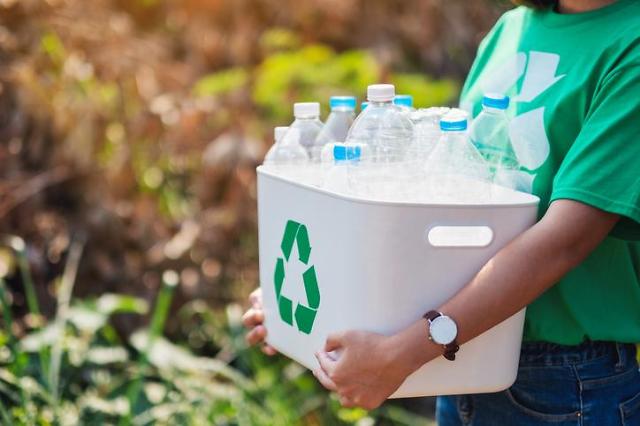
[Gettyimages Bank]
Polybutylene adipate terephthalate (PBAT) is a biodegradable random copolymer marketed as a fully biodegradable alternative to low-density polyethylene. It is used such as plastic bags and wraps. PBAT makes it ideal for combination with other biodegradable polymers that have high elastic modulus and strength but are very brittle.
SKC signed a business cooperation agreement with the state-run Korea Research Institute of Chemical Technology (KRICT) and the Ulsan city government to cooperate in a government project to demonstrate and commercialize high-strength degradable bioplastics by adding nanocellulose reinforcement extracted from wood pulp to ordinary PBAT.
The new high-strength PBAT overcomes the weakness of tearing or stretching easily to have tensile strength at the level of widely used petroleum plastics. It can replace refractory plastic materials such as disposable plastic bags and injection products.
SKC and KRICT will develop technologies for the mass-production of materials and the speed control of biodegradation. Ulsan provides facilities necessary for a demonstration project. Through the quick acquisition of related technologies, SKC aims to commercialize high-strength PBAT in 2021.
Copyright ⓒ Aju Press All rights reserved.



